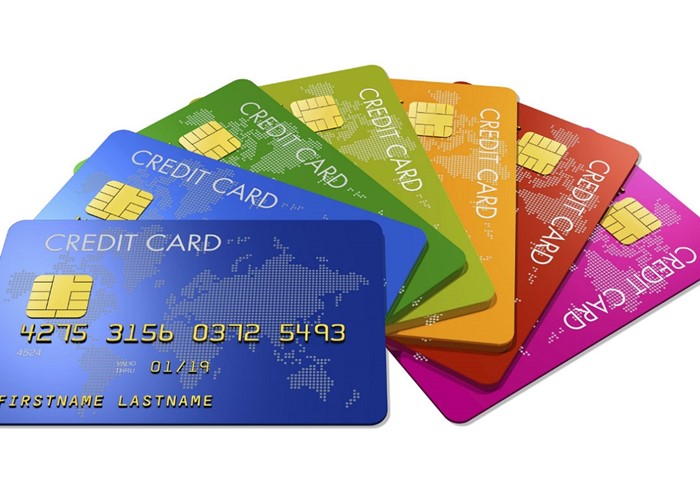New online ID fraud threat that will wreck your Christmas

ID fraud is a big problem this time of year - especially when so many of us are looking online to pick up a Christmas bargain. Here's how to make sure you don't get stung...
I don't know about you, but I’m definitely in the mood for a thrifty Christmas. But however careful you are with your pennies this festive season it’s never worth compromising on security in the search for a good deal.
The last thing you want is the worry of cancelling all your credit cards and filing insurance claims because some toe-rag has swiped your identity and gone on a spending spree.
The facts
From pick-pocketing to bin raiding, identity theft has always been a problem in Britain. But the rise of online shopping and social networking has given those sneaky ID thieves yet another way to separate you from your hard-earned cash.
A recent study by Unisys shows that 85% of the public are worried about cyber security – with nearly one in ten Brits switching banks or retailers because of concerns over the way they protected their details.
What’s more, PayPal reckons that over 30 million people use internet shopping at Christmas, spending almost £9 billion online. But determination to bag an online bargain could be putting many shoppers security at risk: only one in seven people seeing buying from a trusted site as a priority when shopping online. Unisys also found that a majority (65%) of online shoppers fail to regularly use or update mobile passwords – putting them at risk even further.
Follow these top tips to protect yourself against ID fraud
Ways to stop cyber-crime
But fear not, here are ten ways to protect yourself from becoming a victim of online festive fraud.
1. Passwords
Use a variety of passwords. Using upper and lower case letters and several numbers is always best. But whatever you do, don’t write them all down on a piece of paper and pop them in your wallet! Be savvy and write down clues that will help you remember each password. If you’re struggling to think of anything you can now even download a random password generator for your iPhone.
2. Social networking
Be careful who you befriend on social networks, often your date of birth or post code is all any cyber-crook needs to gain access to a treasure trove of online accounts and personal data. Even if you remove your date of birth, a barrage of happy birthday Facebook wall posts could be all it takes to give away your PIN.
For some more information on safe and secure social networking check out how to avoid Facebook fraud.
3. Mobile phones
Smartphones now carry a wealth of data including e-mails, online banking and work documents. Make sure you protect yours with a password.
4. Legitimate websites
Don’t shop anywhere that doesn’t clearly state its name, physical address and telephone number. Keep an eye out for the padlock symbol in the bottom corner of the webpage and the official logos of credit and debit card providers and ensure the URL starts with https.
5. Internet settings
Make sure your internet browser is completely up-to-date. Yes, I know that window that keeps popping up urging you to upgrade to version 8 is annoying, but if you click ‘remind later’ for long enough then you’re putting yourself at risk! It’s also worth installing a secure firewall, chaging your security settings level to moderate or high and switching cookies off – these are devices that keep tabs on the websites you have visited and can send information to nasty third parties.
6. Anti-virus software
Make sure your anti-virus and anti-spyware software is fully up to date. Use this software to scan any e-mail attachments you receive or files you download from the web.
7. Examine bank and credit card statements
Most banks will allow you to check your statements online 24/7 nowadays – make sure you do, and report any unusual activity to the bank. If you’ve got several accounts you can use the lovemoney.com online banking tool which merges all your information from different providers and makes it available with a single log in.
8. Check your credit record
Credit reports list all credit commitments and recent applications, allowing you to find out if anyone has been trying to use your ID. Check yours here.
9. Avoid phishing e-mails
A classical fraudster method is to e-mail you pretending to be your bank and ask for personal details. If you ever get an e-mail like this, delete it! Banks will never ask for any personal details.
10. Common sense
If an online bargain seems too good to be true, it probably is! Be sensible when shopping online and try to balance getting a good deal with maintaining online security.
Thanks to Unisys vice president Neil Fisher and PayPal for these tips.
Other important preventative measures
Of course, offline ID theft and fraud does still go on, so protecting yourself when out shopping is still essential. Have a look at 10 ways to avoid being a victim of ID fraud to find out more ways you can protect yourself before hitting the shops this Christmas.
And if you fancy finding out how susceptible you are to being scammed online, take a look at the brand new Threat Test which has been launched by knowthenet.org.uk. It assesses your ability to identify different types of scams and gives you an online safety score.
Your top tips on avoiding ID fraud
Use the comment boxes below to tell us about any ID theft nightmares you’ve experienced or give us your top tips on how to avoid them. We want to know what you think!
This article has been updated from an earlier version.
Comments
Be the first to comment
Do you want to comment on this article? You need to be signed in for this feature